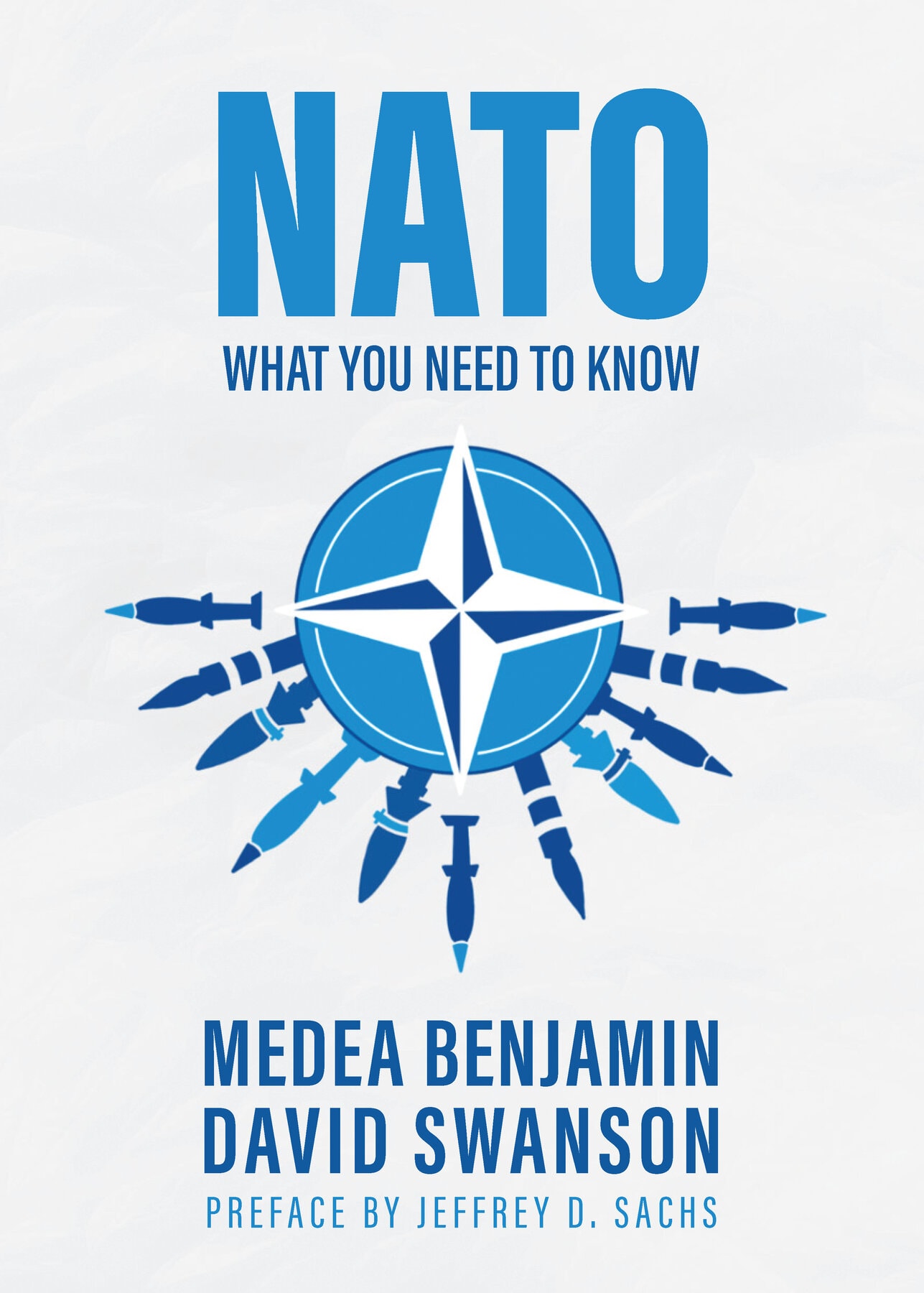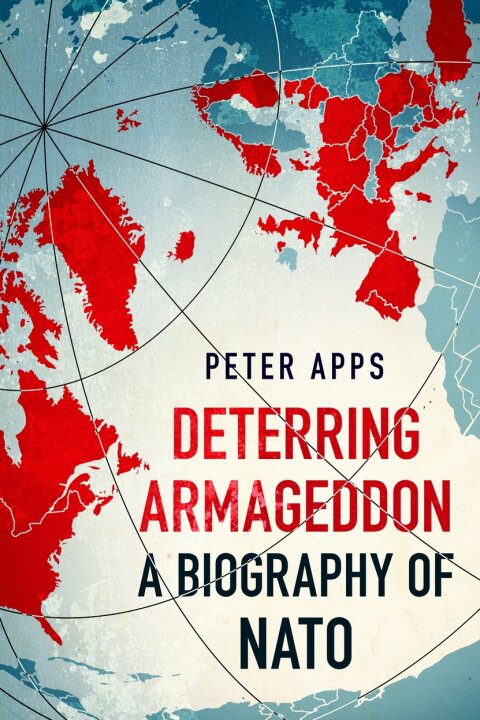NATO: What you need to know
Authors: Medea Benjamin and David Swanson
Publisher: OR Books
It’s a safe bet that Medea Benjamin and David Swanson won’t be raising a toast to NATO’s 75th anniversary. In their insightful new book, NATO: What you need to know, the authors deliver a thorough critique of the alliance’s journey from its post-war origins to its current geopolitical role. Benjamin and Swanson provide an unflinching critique, dissecting NATO’s controversies while questioning its decisions and highlighting what they argue are the downsides of its policies.

While their perspective may run contrary to the transatlantic establishment, it provides a compelling lens through which to view one of the world’s most formidable military alliances. Even those who disagree with the authors’ views should value the debate they spark about NATO’s role today.
Each of the book’s 11 chapters tackles a key topic – such as NATO expansion, its involvement in conflicts and its fraught relationship with international law. The authors excel at clarifying complex geopolitical issues and presenting them in a clear and engaging manner. By avoiding excessive jargon, they make these intricate topics more accessible and easier to understand.
True to their activist roots, the writing is direct and challenges conventional perspectives. Benjamin, co-founder of the female-led peace group CodePink, and Swanson, executive director of the anti-war organisation World Beyond War, encourage readers to rethink ingrained narratives about NATO.
Benjamin and Swanson scrutinise NATO’s internal dynamics, suggesting it disproportionately serves the interests of the United States. The authors argue that NATO's involvement in Afghanistan and the broader War on Terror involved European nations in operations that largely served US interests. The pressure on European countries to support these missions is presented as a reflection of the unequal power dynamic within the alliance.
The book’s analysis of NATO’s role in the Ukraine crisis is particularly striking. Benjamin and Swanson argue that NATO’s support for Ukraine’s bid to join the alliance, which stretches as far back as 2008, played a significant role in escalating tensions with Russia. In their telling, the alliance’s military aid since Russia’s full-scale invasion in 2022 has not only prolonged the conflict but also complicated efforts to forge a peaceful resolution. They see the conflict as more than just about Ukraine; it’s part of NATO’s relentless push toward Russia’s borders, suggesting that the influx of arms and support has exacerbated the situation rather than alleviated it.
In their concluding chapters, Benjamin and Swanson call for a re-evaluation of NATO’s role on the global stage, advocating for a shift away from military alliances and intervention, and towards a more comprehensive approach that tackles the root causes of conflict. They emphasise that addressing social and economic injustices is crucial for achieving genuine and sustainable security.
Despite its compact size, NATO: What you need to know is rich with detailed discussion that contributes to the broader discourse about the role of the transatlantic alliance. The authors’ straightforward style keeps the book accessible. It is by no means a light read, but certainly a rewarding one for those willing to engage with its challenging arguments.
Deterring Armageddon: A biography of NATO
Author: Peter Apps
Publisher: Wildfire
As an experienced journalist, British army reservist and executive director of the Project for Study of the 21st Century, Peter Apps brings an interesting perspective to the flurry of publications marking NATO’s anniversary. His contribution, Deterring Armageddon: A biography of NATO, takes readers from the backroom deals that led to NATO’s creation, through the cold war, to the Balkans and Afghanistan, and on to the current confrontation with the Kremlin following Russia’s full-scale invasion of Ukraine.
While it’s a long read, Apps’ engaging writing style ensures it motors along, delivering far more than a mere chronicle of events.

Apps opens with the present-day crisis in Ukraine, using it to explore NATO’s renewed relevance and the difficulties the alliance faces. Russia’s invasion in 2022 is portrayed not just as a flashpoint, but a critical test of NATO’s resolve and effectiveness in the 21st century. The conflict is a stark reminder of the alliance’s original purpose – to maintain adequate military strength and political resolve to deter aggression – and sets the stage for Apps’ exploration of NATO’s historical and strategic development.
From there, Deterring Armageddon delves into NATO’s origins and its role during the cold war. Apps traces NATO’s evolution from a defensive alliance aimed at countering Soviet power to a complex organisation dealing with global security challenges. He emphasises that NATO’s expansion in the post-cold war era, particularly in eastern Europe, has been a major point of contention. It has significantly contributed to the strained relations between NATO and Russia.
Apps does not shy away from examining NATO’s more contentious interventions, particularly in the Balkans and Libya. He delves into the controversies surrounding these operations, detailing the intense debates within the alliance regarding their legitimacy and effectiveness.
In the case of Libya, for example, Apps highlights how the intervention was marked by disagreements over NATO’s leadership role, with countries like Italy insisting on NATO’s command of operation, and the long-term consequences of its actions in the region.
Apps underscores the challenges NATO has faced in balancing its stated mission of collective defence with the complexities and moral dilemmas of international intervention. He particularly explores the delicate balance NATO has often tried to strike between deterrence and escalation, especially in moments of tension, such as the Cuban Missile Crisis in 1962. Although NATO was not directly involved, the crisis exemplified how broader security concerns impacted NATO members and influenced its strategic position during the cold war.
The book also addresses NATO’s recent challenges, particularly with the resurgence of Russian aggression. Apps delves into the 2014 annexation of Crimea, a significant turning point that marked the end of the post-cold war order in Europe. He examines how this event, a prelude to Russia’s full-scale war ongoing in Ukraine, has revitalised NATO's purpose but also exposed its vulnerabilities. For Apps, the Russian military’s swift seizure of Crimea revealed gaps in western intelligence and preparedness.
Apps also addresses the implications of emerging threats, such as cyberwarfare – a critical component of Russia's strategy in Ukraine. Additionally, he examines the rise of China as a global power, which presents new challenges to NATO.
Apps is clear-eyed about the difficulties ahead. NATO's survival will depend on its ability to evolve and address these emerging threats. For anyone interested in understanding NATO’s past, present and potential future, Apps’ book is an essential read.
Sign up to The Parliament's weekly newsletter
Every Friday our editorial team goes behind the headlines to offer insight and analysis on the key stories driving the EU agenda. Subscribe for free here.